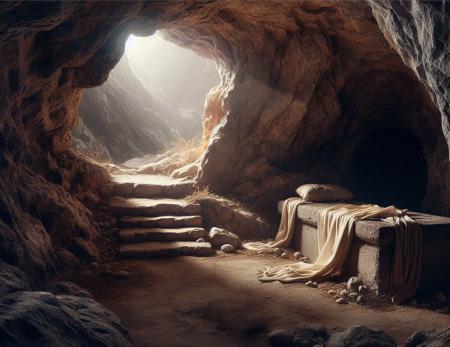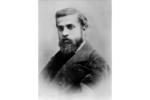United Auto Workers strike for new deal bolstering families, hometowns amid Big Three 'record profits'
(OSV News) -- The wheels of America's auto industry stopped rolling Sept. 15 at three plants in Michigan, Ohio and Missouri, when nearly 13,000 United Auto Workers union members walked off the job -- the first time in U.S. history the UAW has gone on strike simultaneously against "Big Three" automakers Ford, General Motors and Stellantis (whose 14 automotive brands also include Chrysler, Dodge, and Jeep).
Union contracts for 150,000 UAW members at the Big Three expired on Sept. 14. Under the expired contract, full-time autoworkers start at $18 per hour, with a top rate of $32 per hour after eight years.
"Record profits mean record contracts," said UAW president Shawn Fain in an Aug. 1 livestream update to members, noting that Ford, General Motors and Stellantis made a combined $21 billion in profits during the first six months of 2023, and North American profits of a quarter-trillion dollars in the last 10 years.
"What our Catholic Church teaches is that we participate in collective bargaining," explained Father Sinclair Oubre, spiritual moderator of the Catholic Labor Network and pastor of St. Francis of Assisi Catholic Church in Orange, Texas. "But when situations become dire, the workers do have a right to withhold their labor -- so as to continue to promote their requests and demands in the collective bargaining agreement."
Father Oubre, who drives a 2013 Chevrolet Cruze built in Ohio, said the factory that produced it "shut down, and thousands of workers don't work there anymore."
He noted that strike actions are often more complex than public perceptions.
"The public often dismisses these things as just a battle between two forces over money," Father Oubre said. "But there's often other things in these contracts besides money, that affects the negotiating stance of the workers."
The UAW asserts that the automakers can afford their demands, which include double-digit wage increases -- a 40% pay increase that tracks with the 40% pay increase over the past four years given to Big Three CEOs, who earn nearly 300 times as much as autoworkers. The union also called for a defined benefit pension for all workers; an end to tiered pay scales in which workers receive different wages for the same work; restoration of cost-of-living adjustments; unionization as new electric vehicle (EV) plants open; additional paid time off; re-establishment of retiree medical benefits and increased retiree pay.
"Personally -- coming from a working-class family -- these decisions are not made lightly," Father Oubre said.
"Months ago -- or weeks ago, at least -- the individual members of the United Auto Workers had to take a vote as to whether to give their leadership permission to strike," he explained. "For those members who are going to strike, it puts an end to their income. They have to draw upon their savings to go through this period. So it's important for folks outside of the strike situation to recognize that this is not just done haphazardly, but is done with a great deal of consideration."
The UAW is estimated to have $825 million in its strike fund; workers will be paid $500 per week by the union while on strike.
The Catholic Church has an extensive history of teaching and actions that support the rights of workers as both popes and prelates have spoken directly to the issue of unions and strikes.
Archbishop Borys Gudziak of the Ukrainian Archeparchy of Philadelphia said in an Aug. 30 statement released by the U.S. Conference of Catholic Bishops for Labor that labor unions were "essential" to the thriving of working families.
"Indeed, as Pope Francis has suggested, 'there are no free workers without trade unions,'" said Archbishop Gudziak, chairman of the USCCB's Committee on Domestic Justice and Human Development, underscoring the pope's statement that unions must "be a voice for the voiceless."
St. John Paul II also stated in his 1981 encyclical "Laborem Exercens" that strikes are "recognized by Catholic social teaching as legitimate in the proper conditions and within just limits. ... Workers should be assured the right to strike, without being subjected to personal penal sanctions for taking part in a strike."
The U.S. Conference of Catholic Bishops' 1986 pastoral letter "Economic Justice for All" teaches, "Unions may also legitimately resort to strikes where this is the only available means to the justice owed workers."
In 2019, more than 48,000 GM workers went on strike for 40 days prior to a new deal.
During what has been called a "hot labor summer," Reuters reported Aug. 30 that 2023 is "on track to become the busiest year for strikes since 2019."
The first half of 2023 witnessed a sharp uptick in labor union activity, including strike actions. Preliminary U.S. Bureau of Labor Statistics data indicate some 295,000 American workers have participated in work stoppages through July of this year.
The AFL-CIO -- the nation's largest labor federation -- has voiced its support for the current UAW strike.
"It's historic because the union is walking out at all three of the U.S. Big Three automakers; they've never done that before," said professor Joseph McCartin, executive director of Georgetown University's Kalmanovitz Initiative for Labor and the Working Poor in Washington.
"It's historic because they're not calling everybody out at once -- but rather, targeting specific plants. That's a real innovative strategy," Professor McCartin explained, "and one that I think the companies weren't expecting … striking smarter, you might say, in a more strategic way. What the union is doing now is not going to be that easily dealt with by the employers."
McCartin told OSV News "the innovative character of the strategy sort of recalls the strike that really founded this union in the 1930s, when autoworkers in Flint, Michigan, sat down inside and occupied one of the strategically important plants of General Motors -- which really got the first union contract."
Msgr. George Higgins (1916-2002) -- often called America's "labor priest" -- served for decades on the UAW's internal oversight committee.
"Clearly, this union has learned from history," McCartin said, "not only how it achieved a breakthrough in the '30s, but also what happened to American unions in the past 40-50 years -- which is that unions in the United States lost a lot of the leverage that they once had in employing strikes as a tool in bargaining."
In the 1980s and afterwards, McCartin noted that employers simply began to replace striking workers, which "really weakened unions -- to the point where they became reluctant by the 21st century to even engage in strikes."The stakes, however, have grown higher with technological advances.
"The auto industry is engaged in a transition from the internal combustion engine to electric vehicles," McCartin explained, "and a key issue of this strike is whether the emerging electrical vehicle plants and battery plants are going to be unionized or not."
The UAW also is demanding the right to strike over plant closures -- noting the devastating impact of the Big Three's closure of 65 plants over 20 years on autoworkers' communities -- and a family protection program should a plant be closed.
"This fight is our generation's defining moment. Not just at the Big Three, but across the entire working class," reads a statement on the UAW's website. "We will stand up for ourselves ... for our families ... for our communities."
- - - Kimberley Heatherington writes for OSV News from Virginia.



















